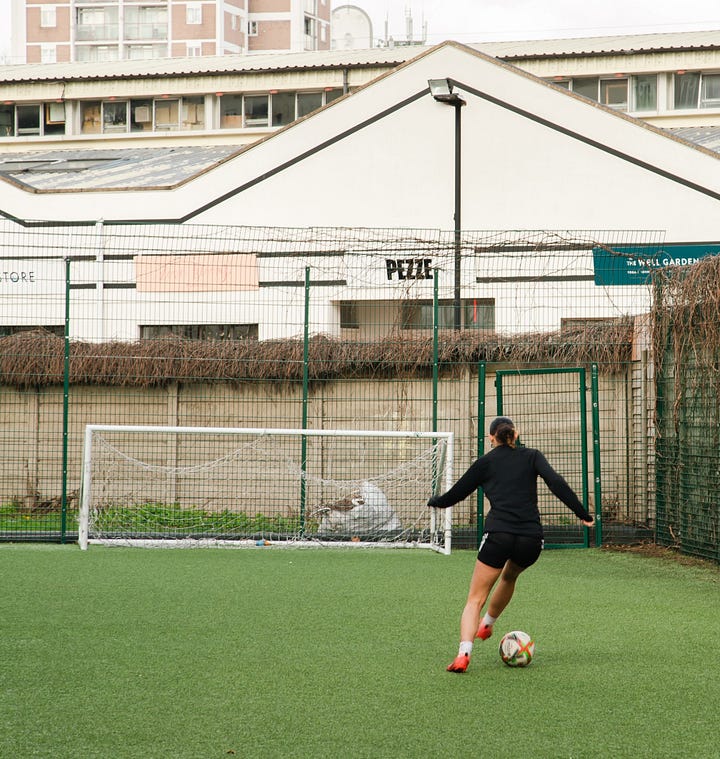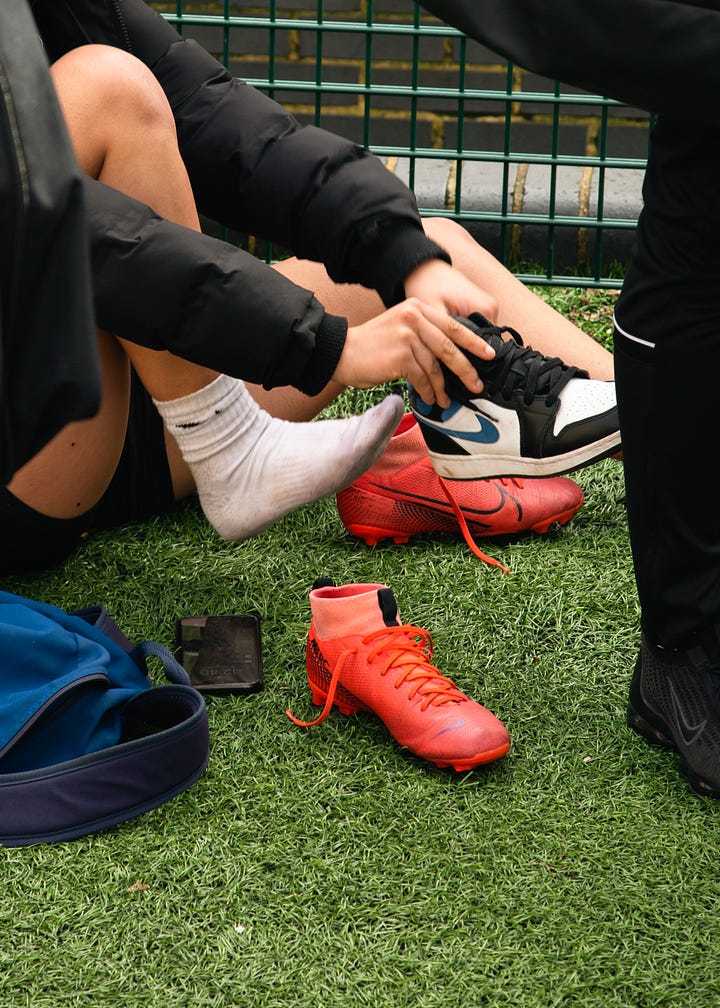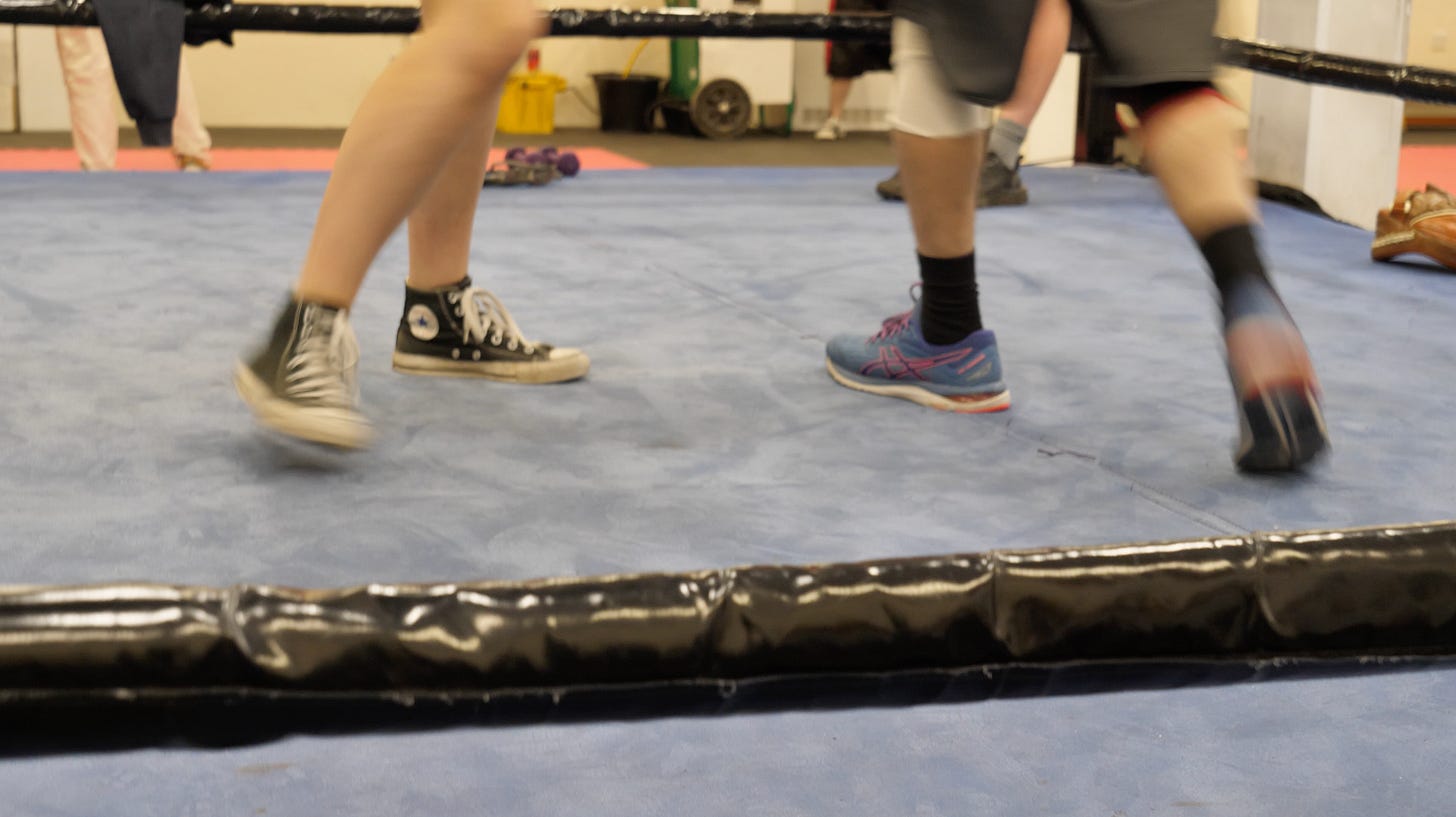Keep on playing: teenage girls and sport
Too many girls are dropping out of sport during their teenage years. For its Small Fields Report, The Mix spoke to teenage girls to understand their challenges and explore solutions.


An astonishing 64 per cent of teenage girls will quit sports by the age of 16. Most of them will not come back.
Teenage girls continue to leave sport at a faster rate than teenage boys: a 2022 survey by Women in Sport found that 43 per cent of teenage girls “fall out of love” with sport post-primary school – equating to 1.3 million girls across the UK – compared with just 24 per cent of boys.
However, the desire to stay active and engage in sports doesn’t diminish. By the age of 14-16, 78 per cent of girls understand the importance of an active lifestyle, yet only 28 per cent actually enjoy participating in physical activity, compared to 46 per cent of boys.
Why is there such a disparity in participation? How can brands help correct this imbalance – and why should they?
Firstly, there should be no doubt it’s an important issue: there are implications for girls and their relationship to sport beyond their physical health, impacting their overall well-being, self-confidence, and providing opportunities for personal growth.
So, The Mix decided what was needed was a deep dive into the experiences teenage girls have with sport. The end result was our Small Fields Report - named so after girls spoke to us about regularly being relegated to the smaller or older pitches to play sport on - which offers a unique perspective on teenage girls and their relationship with sport, as told by teenage girls themselves.
We found that as girls move into their teenage years, they are not only competing with boys but also with their own changing bodies and the societal pressures they face. This is when today’s beauty standards begin to take hold, and their relationships with themselves begins to change.
We listened to the stories of eight girls, aged between 13-19, from different parts of London, each with their own unique way of moving their bodies and engaging in sports, including football, wrestling, or boxing.
We wanted to know: for those who persevere, what keeps them going? And what’s their experience like?
At the time of immense change and challenges in a girl’s life, we were able to dig deep into what sport truly meant for them. In the stories shared, sports go beyond being just an activity or something to be done in PE lessons. It becomes a passion, an ambition, and a way to navigate the ups and downs of being a teenager. Movement helps them overcome everyday challenges and brings them closer to their desired selves.
One teenager explained how Kabaddi wrestling helped her reclaim her femininity. In her teenage years, she struggled to embrace her feminine side and nurture her body. However, playing a sport granted her the freedom to let go and embrace her appearance and, more importantly, how she feels within herself. While another talked about how dancing allowed her to “channel what’s important to me and release any energy I have.”
One of the teenagers, a team captain of a London football team, described the stresses caused by societal pressures around appearance. However, she explained that “playing football makes us happy. It’s an escape from everyday stresses.” She explains that she wants people to understand that teenage girls are multi-dimensional beings: sports do not define their entire identity, but are a part of it.
These girls demonstrate the importance of understanding that their participation in sports should not be seen as a standalone aspect of their teenage years. Instead, it’s one of the core elements that helps teenage girls in their journey of becoming.
Within the stories, many of the teenage girls described being hesitant to try new things or step into new territories within sport. Yet once they did, they felt empowered and were able to discover what truly resonates with them and the diverse ways in which they can authentically express themselves.
Their stories show us that gender-stereotypes and societal pressures must stop preventing girls from enjoying and participating in sport once they hit their teenage years. Instead, they should be encouraged to stay engaged with sport.
There is an opportunity for brands to play a significant role in supporting teenage girls through their relationship with sports. By empowering girls, they can contribute to their self-acceptance, identity formation, and overall wellbeing, helping them on their journey to become.
To learn more about our Small Fields report and the implications and solutions for brands, get in contact with sam@themixglobal.com. Watch this space for further exploration of the experiences of women in sport.


